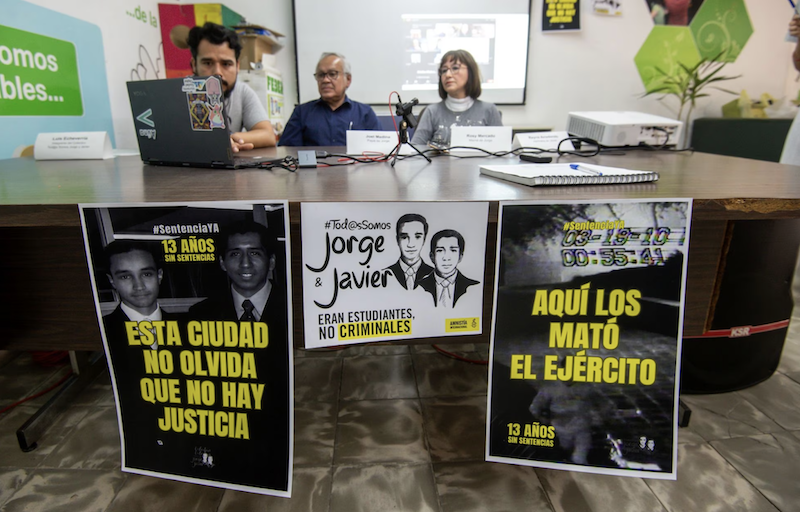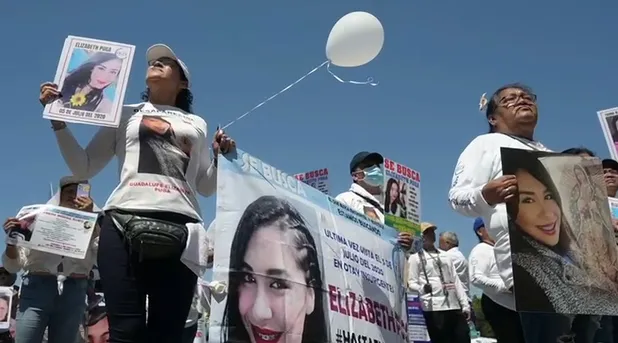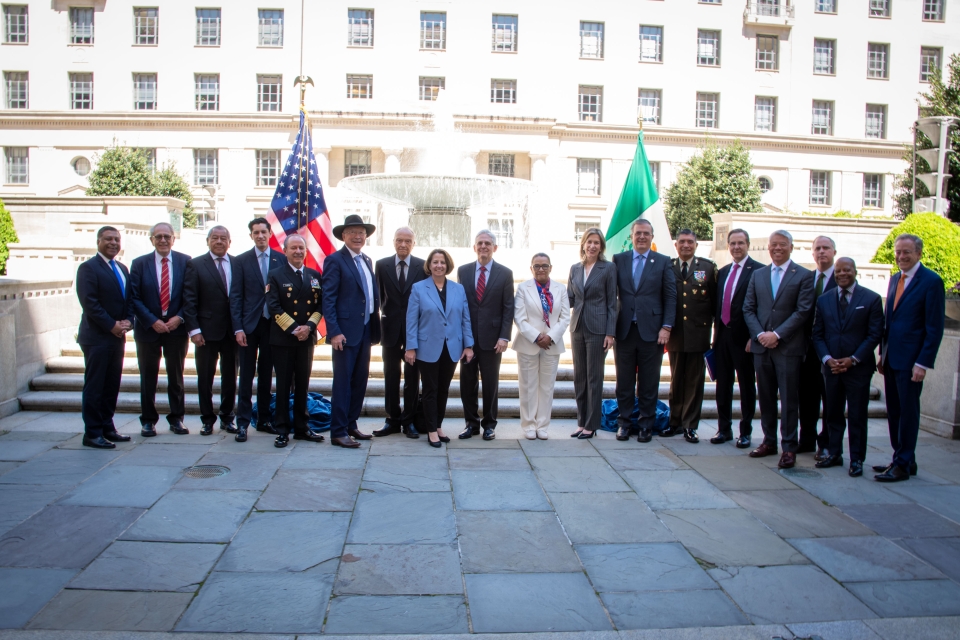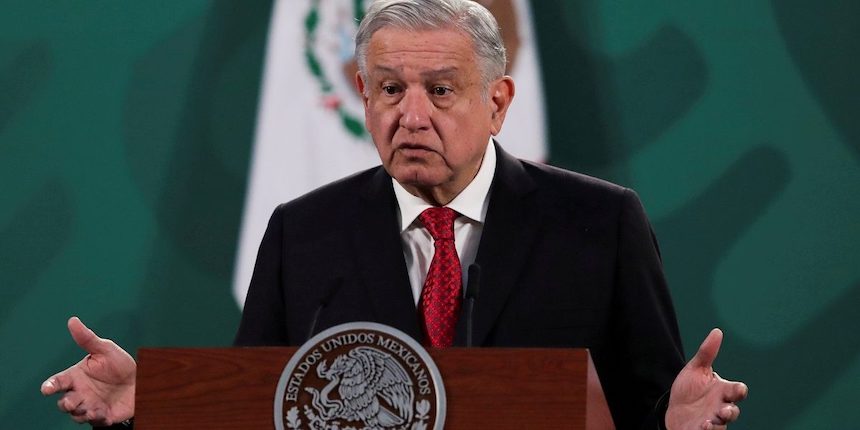
06/27/16 (written by kheinle) — Mexican President Enrique Peña Nieto vetoed down a proposed package of anticorruption bills on Thursday, June 23 that, among other changes, would require recipients of government funding, whether public or private, to publicly disclose their assets. The veto sends the package, more commonly known as “Ley 3 de 3” or “Law 3 out of 3,” back to the Senate for reform. This was President Peña Nieto’s first veto as president since taking office in December 2012.
If revised and eventually approved by President Peña Nieto, the package of legislation would serve as secondary laws to round out Mexico’s National Anticorruption System (Sistema Nacional Anticorrupción, SNA), a system Peña Nieto signed into law in May 2015 as an overarching means to address corruption, transparency, and accountability in Mexico. As summarized by Mauricio Merino the Wilson Center’s Mexico Institute, the National Anticorruption System will:
- “Create a history of the country’s institutional experiences with corruption;
- Establish an active channel of interaction between the three federal branches, autonomous organs, and local governments;
- Prevent the fragmentation of current institutions and create…courts to sanction administrative offenses, serious acts of corruption, and federal crimes…;
- Promote the creation of a system that would address corruption beyond the federal level by focusing on state and municipal governments as well;
- Use a system of checks and balances to comprehensively fight corruptions;
- Investigate and prosecute those responsible for committing corrupt acts—both in the government and among private citizens—and go further by addressing the causes of corruption; and
- Establish measures to create institutional intelligence, prevent corruption, support innovation, and promote a national culture that stands against corruption.”
The supporting legislation to the National Anticorruption System vetoed down by Peña Nieto was historic in nature. First, the anticorruption system is tackling a notorious and damning problem—corruption—that continues to plague Mexico. According to Transparency International’s annual report, “Corruption Perceptions Index 2015,” Mexico ranked 95 of 168 countries in the world for worst levels of corruption, tied with Armenia, Mali, and the Philippines. On a scale of 0 (‘highly corrupt’) to 100 (‘very clean’), Mexico scored a 35, putting it 5 points below the average for the Americas and 8 points below the global average.
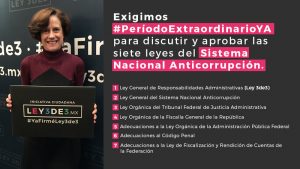
Second, the supporting laws put forth were largely hailed because they originated at the grassroots level, something that, several years prior, would not have been allowed. A law passed in 2014 now allows community members who collect more than 120,000 validated signatures to propose legislation. With more than 630,000 signatures on the “Ley 3 de 3” petition, the package of bills supporting the SNA was presented to the Peña Nieto administration in spring 2016 by Denise Dresser, a political analyst and well-known figure in Mexico, who launched the online petition through Change.org. “This is why today,” Dresser stressed in a letter presented with the petition, “with 634,143 civilians signing #Ley3de3 and many more Mexicans in support, we demand that Congress convene a #PeríodoExtraordinarioYA [#ExtraordinarySession] to approve the SNA in full with the seven laws that make it up and that the Senate as well as the Chamber of Deputies listen to the will of the Mexican people.” Congress eventually advanced the legislation, but not before lawmakers from the Institutional Revolutionary Party (Partido Revolucionario Institucional, PRI), also the party of Peña Nieto, removed a specific portion of the bill that would have held elected officials and other public officials accountable by requiring them to turn over their assets, taxes, and potential conflicts of interest. It is important to note that the National Anticorruption System originated from the National Action Party (Partido de Acción Nacional, PAN) with support from the Democratic Revolutionary Party (Partido Revolucionario Democrático, PRD) in 2014.
Ultimately, the amended package reached President Peña Nieto’s desk, where he had to balance the public versus private considerations. On the one hand, over 630,000 civilians’ supported the SNA legislation to further deter corruption and increase transparency among elected officials. On the other, just days prior to the veto, the president met with the Business Coordinating Council (Consejo Coordinador Empresarial, CCE) to discuss their concerns with the legislation. In particular, the CCE “sought to explain that declaration of tax, property interests of owners and the companies’ workers, as well as trainees and beneficiaries of government programs, would turn out to be unworkable. Instead of achieving transparency [the obligation to declare] would lead to legal uncertainty.” Coupled with the PRI’s amendments, the president eventually vetoed the package, remanding it back to Senate for amendments to the “Ley 3 de 3.” Writes Reuters quoting Peña Nieto’s legal advisor, Humberto Castillejos, following the veto, “The presentation of the declarations of millions and millions of Mexicans who … earn their living honestly would in no way help combat corruption.”
The Senate’s Political Coordination Committee (Junta de Coordinación Política del Senado de la República) has agreed to meet Wednesday, June 29 in an extraordinary session to take up the president’s request to revise the package.
Sources:
“Corruption Perceptions Index 2015.” Transparency International. January 27, 2016.
“Exige Denise Dresser se apruebe Sistema Nacional Anticorrupción.” Vanguardia. April 29, 2016.
“Mexican president vetoes package of anti-corruption bills.” Reuters. June 23, 2016.

